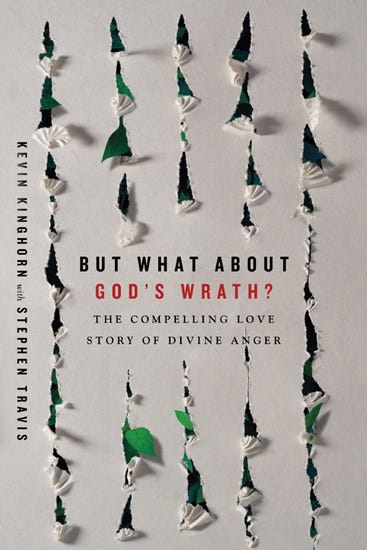But What About God’s Wrath?
Review by Laura Paul
Kevin Kinghorn with Stephen Travis
But What About God’s Wrath: The Compelling Love Story of Divine Anger
Downers Grove: InterVarsity, 2019.
Available at IVP or Koorong
Review Laura Joy Paul
Say you have a (diabolical) longing to set the theological cat among the ecumenical pigeons. I suggest that the easiest option is to sing the modern hymn classic, In Christ Alone, drawing special attention to that one fated line: “The wrath of God was satisfied.” You then have two ways of proceeding. You could simply sing the line as it is. This path will almost inevitably begin a riotous debate over atonement theology. Otherwise, if you dare, you could alter said line to the seemingly more innocuous “the love of God was justified” or the “the Son of God was glorified”. This will undoubtedly lead to a veritable riot.
What this evil suggestion of an example goes to show is that the wrath of God is not a topic many find it easy to come to terms with or to discuss in a clear and constructive manner. This is where Kevin Kinghorn and Stephen Travis’s book, But What About God’s Wrath: The Compelling Love Story of Divine Anger is a much-needed aid. This slim work of collaboration between a Christian philosopher and a biblical scholar provides a clear, logical, and scripturally informed discussion of what can so often prove a minefield.
The book is formed as an eight-chapter, single-line argument. Its big idea is “that God’s wrath is entirely an expression of God’s love, in specific contexts. And all the ways God relates to us—including his expressions of wrath—can be derived from the starting point of God’s love.” (p. 2). Kinghorn—the philosopher—has shaped the majority of the writing, though Travis’s contribution of biblical material seamlessly runs throughout, combining in a rich and nuanced approach. The first four chapters seek to set the stage by considering 1. What kind of action God’s wrath is, (2.) whether God’s character is necessarily benevolent, (3) whether God’s benevolence necessarily seeks our flourishing, and (4) how God’s benevolence relates to his justice, holiness, and glory. Chapters four to eight then look more closely at what God accomplishes through his wrath, namely, pressing the truth of our sinfulness upon us by showing us the reality of life outside of his benevolent protection so that we might repent. This section provides fascinating connections in relation to bigger theological questions such as the problem of evil and the nature of sanctification—connections well worth pursuing further.
But What About God’s Wrath is not intended as an engagement with the broader Christian tradition on this topic, though is clearly grounded therein (its engagement with the Wesleyan tradition is especially strong). I often wondered whether a stronger engagement with the Great Tradition would prove fruitful and strengthen the constructive moves of the book. And yet, the clarity and succinctness of Kinghorn’s single line of argument makes up, I think, for anything missing with respect to the breadth of engagement. All in all, Kinghorn and Travis have provided a thoroughly readable, sensible, and challenging handling of a very complex topic


